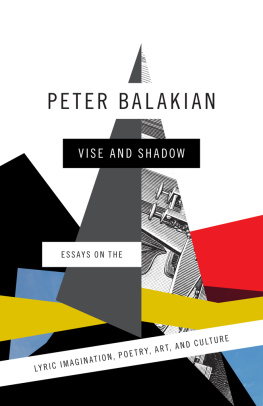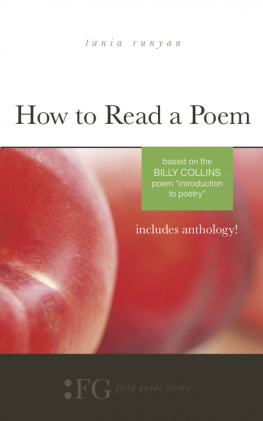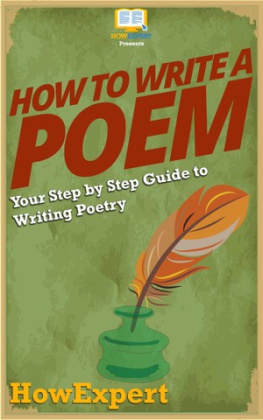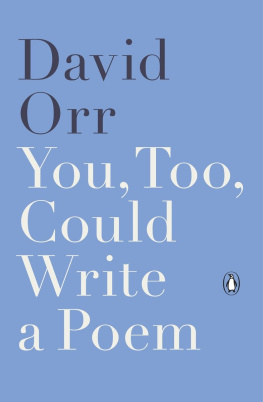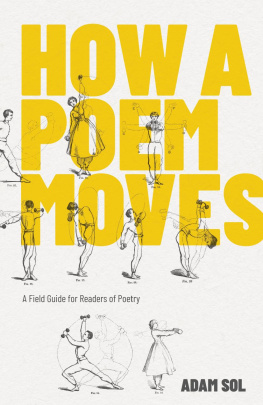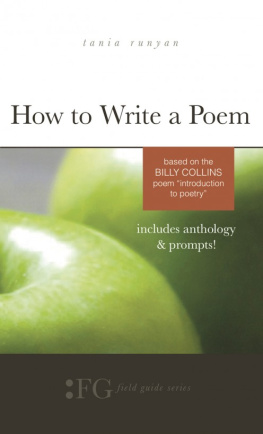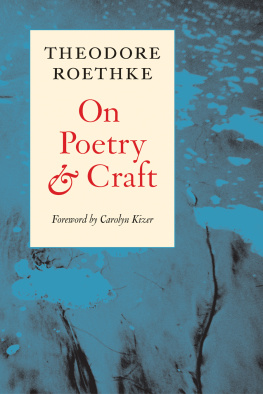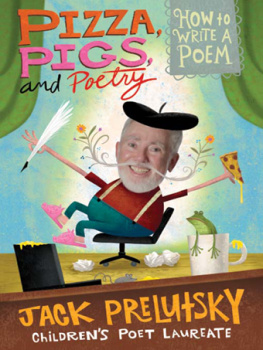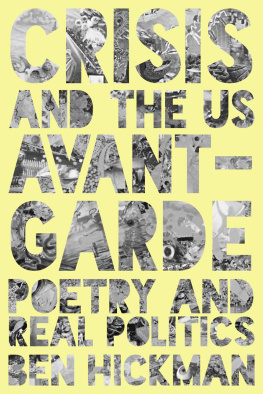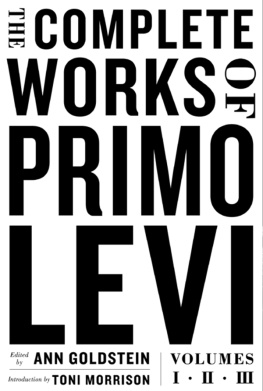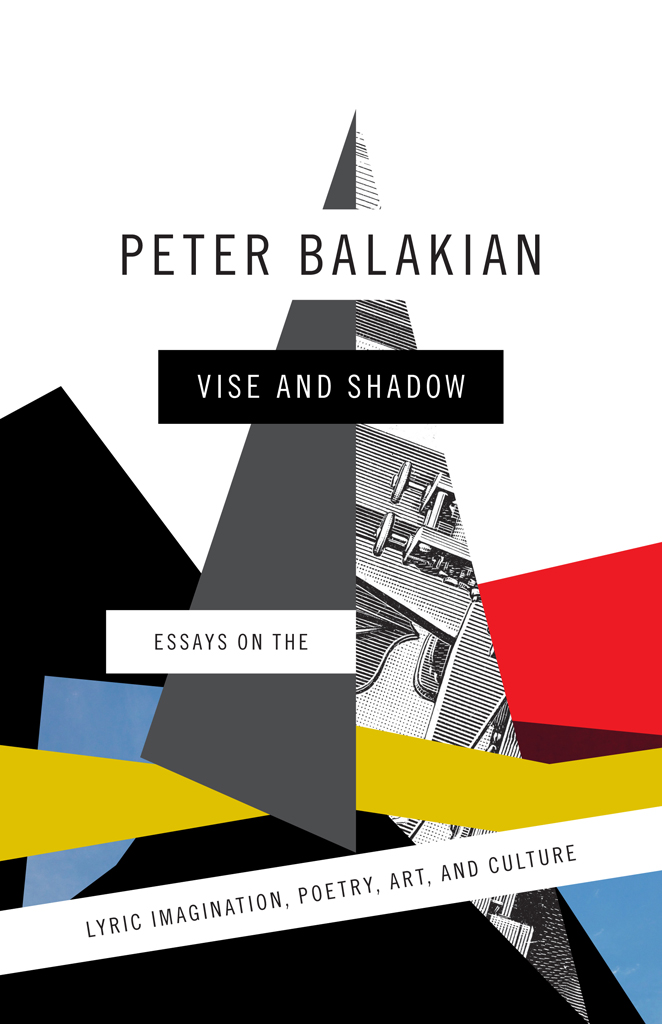Vise and Shadow
Essays on the Lyric Imagination, Poetry, Art, and Culture
PETER BALAKIAN
The University of Chicago Press
Chicago and London
P ETER B ALAKIAN is the Donald M. and Constance H. Rebar Professor in Humanities and professor of English at Colgate University. He is the author of seven books of poems, most recently Ziggurat and June-tree: New and Selected Poems, 19742000. He is also the author of The Burning Tigris: The Armenian Genocide and America's Response, a New York Times best seller, and Black Dog of Fate, a memoir. A new collection of poetry, Ozone Journal, is also available from the University of Chicago Press.
The University of Chicago Press, Chicago 60637
The University of Chicago Press, Ltd., London
2015 by The University of Chicago
All rights reserved. Published 2015.
Printed in the United States of America
was originally published in Art in America (February 1996), 58-67. Courtesy BMP Media Holdings, LLC.
Sarajevo by Peter Balakian from Ziggurat 2010 by The University of Chicago. All rights reserved.
24 23 22 21 20 19 18 17 16 15 1 2 3 4 5
ISBN -13: 978-0-226-25416-6 (cloth)
ISBN -13: 978-0-226-25433-3 (paper)
ISBN -13: 978-0-226-25447-0 (e-book)
DOI : 10.7208/chicago/9780226254470.001.0001
Library of Congress Cataloging-in-Publication Data
Balakian, Peter, 1951 author.
Vise and shadow : essays on the lyric imagination, poetry, art, and culture / Peter Balakian.
pages cm
Includes bibliographical references.
ISBN 978-0-226-25416-6 (cloth : alk. paper) ISBN 978-0-226-25433-3 (pbk. : alk. paper) ISBN 978-0-226-25447-0 (e-book) 1. PoetryHistory and criticism. 2. Lyric poetryHistory and criticism. I. Title.
PN 1136. B 25 2015
809.1dc23
2014038951
This paper meets the requirements of ANSI/NISO Z 39.48-1992 (Permanence of Paper).
for Robert Jay Lifton
Contents
I think of vise and shadow as two dimensions of the lyric (literary and visual) imagination. Vise (noun): as in grabbing and holding with pressure; as in seizing firmly; as in grasping and having a grip on something; as in having a tight grasp on something, to hold the interest and attention of an audience; to have a firm grasp of and on that which is sought to be understood. Vise as in something that creates something under pressure, as carbon might be put under pressure to create a diamond. The pressure of the vise-grip of the imagination can yield a unique kind of clarity and knowledge. The vise-grip of lyric language, for example, gives the poem or visual work or song a value and a legacy as a deep mine of knowledge and culture in which human thought and emotion, language, and insight intersect and mingle, and come together as distinctive, memorable aesthetic form.
And shadow (noun): the shaded or darker portion of the picture or view or perspective, as partial illumination and partial darkness. Shadow as reflected image, but one that is partially opaque. Shadow as verb: to trail secretly as an inseparable companion, as secret sharer, to play with Conrads trope; to shadow as a force that follows something with fidelity; to cast a dark light on somethinga person, an event, an object, a form in nature. Poetry as aesthetic imagination shadows history, shadows human experience, casts its own kind of illumination, often unromantic, sober, and shadow-like in its truths. Imagination as shadow captures the aftermath of history, and when its shadow-light expands as a shadow expands on the ground in late day, the light lessens but the insight deepens. In the shadow-imagination, the poem can embody, among other realities, trauma. Various forms and kinds of aesthetic memory can also witness the event or its aftermath the same way the shadow of the historical event brings to lightamong other thingsthe relationship between language and history, lyric imagination and memory, whether it be personal memory, inherited memory or intellectual memory.
This gathering of essays written between 1988 and 2012 explores, among other things, some of the vise and shadow of poetry, painting, film, collage, memoir, and song lyrics. Some of the essays began as public lectures, talks, or papers, and others were first published in magazines and journals. All the published essays have been slightly revised and expanded, and those that began as lectures or papers also have been revised and expanded. The map of my interests in these essays brings together poets, writers, and artists from disparate cultural zones that move from the Armenian Caucasus to the Ottoman Empire and Anatolia, to Europe, and to the United States. I hope that the reader will find the vise and shadow connections and contiguities between figures as seemingly disparate as W. B. Yeats, Yeghishe Charents, Hart Crane, Adrienne Rich, Primo Levi, Joan Didion, Theodore Roethke, Elia Kazan, Robert Rauschenberg, Arshile Gorky, and Bob Dylan.
Poetry as Civilization: Primo Levi and Dante at Auschwitz
It is a moment that first comes as a surprise, as he is talking with the Alsatian student Jean, the Pikolo (messenger-clerk) of their Kommando. The Kommando has just finished cleaning an underground petrol tank, and Levi recalls that the powder of the rust burnt under our eyelids and coated our throats and mouths with a taste almost like blood. Levi has become friendly with the Pikolo, with whom he shares an interest in books and language. Jean is an exceptional Pikolo, Levi tells usshrewd, physically strong, and also humane, never neglecting the less privileged comrades of the Lager.
Jean also has an interest in things Italian and would like to learn the language, and now the two of them find themselves in a rare moment. It is a clear, warm June day, and Jean has helped to arrange for Levi to accompany him, to be the assistant to the Essenholen, the one who gets and transports the daily ration. Although this means carrying a pot of more than a hundred pounds on two poles, it is nevertheless a bit of a luxury amid the other grueling chores of the Lager, and, most crucially, the two will have time together, and because Jean has found a longish detour for them, they will have a whole hour together. The prospect of this small journey opens up Levis spirit in what is perhaps his most exuberant moment in his time at Auschwitz: One could see the Carpathians covered in snow. I breathed the fresh air, I felt unusually light-hearted.
The hour is both a small reprieve and yet a moment under pressure. They begin talking about their homes in Strasbourg and Turin, about books theyve read, about the similarities of their mothers. An SS man passes on a bicycle and orders them: Halt, Attention, Take off your beret! Surely they cant fully escape the reality of the Lager, but as they walk on, aware of how precious their time is, Canto 26 rises up in Levis mind; it just comes. The ellipses splice us therewhere the poetry has risen to the surface of consciousness after how many nights of pain and mind-numbing brutality, after how much saturation in death. There it is. Who knows how or why, Levi remarks, but there is no time to speculate.
Why The Comedy, the Inferno? The relationship between one hell and another is an obvious trope, but Levi takes on that challenge. He is also an educated Italian, a scientist by training, and he knows his nations literature. Like any schoolboy, he knows his Dante the way a British schoolboy would know his Chaucer or Milton or Wordsworth. Levi reminds the reader, inadvertently, that this passage of this poem has been in the basement of his head for a long time, and the meanings of this short moment in the

